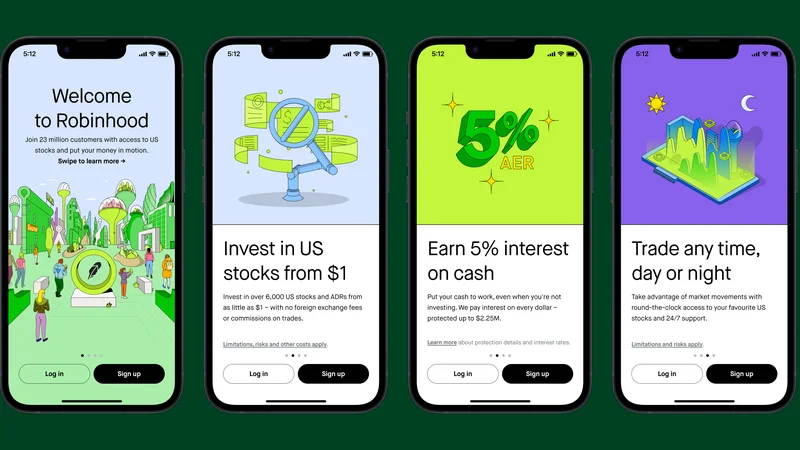Citi Strata Elite: The System Behind the 100K Bonus & Our Full Analysis
The Ghost in the Credit Card: Why Citi's New Card Isn't a Product, It's an Algorithm
For years, the world of premium travel cards has felt like a brute-force arms race. It's been a contest of sheer tonnage: who can bolt on the most lounge access, who can stack the most statement credits, who can justify the most eye-watering annual fee with a spreadsheet of perks that looks more like a tax code than a list of benefits. We’ve seen Chase build its empire on the simple, powerful Sapphire ecosystem, and we’ve watched American Express construct a veritable fortress of luxury with its Platinum card, a product that’s become as much a status symbol as a financial tool. Into this loud, chaotic battlefield, Citi has finally made its move with the Strata Elite, and everyone seems to be asking the wrong question. They’re asking, “Is it better?”
I look at this card, and I see something far more fascinating. This isn’t just Citi’s attempt to build a bigger battleship. I think this is their attempt to deploy a submarine.
The initial reviews have been lukewarm, with one Citi Strata Elite review: Unique credits and lounge access noting that its raw value proposition "falls short" of its rivals. They see the oddly specific earning categories and the niche statement credits as weaknesses. But I see them as something else entirely: a filter. When I first saw the rule for earning 6x points at restaurants—only on Fridays and Saturdays, from 6 p.m. to 6 a.m. Eastern Time—I honestly just laughed. It seems absurdly convoluted. But then the researcher in me took over. I didn't see a limitation; I saw the ghost in the machine. This isn't a flaw in the design; it's the most important feature. It's an algorithm, baked into the card's DNA, designed to hunt for a very, very specific type of person.
What kind of data model tells you to incentivize weekend nightlife spending within a specific 12-hour window that spans time zones? What does the partnership with Blacklane—a high-end chauffeur service, not a mass-market rideshare—tell us about the intended user? This card feels less like a product designed by a marketing committee and more like one reverse-engineered from a data set. It’s a series of questions disguised as benefits: Do you book travel through our portal? Do you fly American Airlines? Do you splurge at Best Buy or Live Nation? Do you stay out late on weekends? If you answer yes to enough of these, the card doesn't just work for you; it sings. This is a paradigm shift from "Here's a pile of value for everyone" to "If you fit this precise behavioral profile, we have built the perfect key for your life."
A Walled Garden with a Welcome Mat
The entire structure of the Strata Elite is built around a concept that we in the tech world know all too well: the walled garden. By offering a staggering 12 points per dollar on hotels and car rentals, but only through the Citi Travel portal, they aren't just encouraging you to use their service; they are creating an ecosystem where your loyalty is rewarded exponentially inside their walls. It’s a classic strategy, but one that has to be executed perfectly. You can’t just build the walls; you have to make the garden inside so compelling that people don't want to leave.
This is where the partnership with American Airlines becomes the absolute linchpin of the whole operation. The ability to transfer points 1:1 to AAdvantage is the welcome mat in front of the walled garden. It's the one, killer feature that other major flexible currencies like Chase and Amex don't have. For a loyal AA flyer, this single perk might be enough to justify the entire ecosystem. It’s a brilliant piece of strategic leverage. This feels like the moment in the early 2000s when Apple locked in the creative industries with Final Cut Pro and Logic—it didn't matter if Windows PCs were more powerful on paper, because the one tool a specific, high-value community needed was only available on a Mac.
Of course, this raises a profound question. Is this the future we want? A world where our financial tools are so hyper-specialized that they gently nudge us into ever-narrower patterns of behavior, rewarding us for staying within the comfortable, data-approved lines? There’s an elegance to it, a kind of beautiful efficiency, but it also signals a future where our choices are subtly curated by the algorithms in our wallets. We're not just customers anymore; we're data points to be optimized. The Strata Elite may not win the brute-force war for total value, but it represents a much quieter, and perhaps more significant, evolution in how these companies see us. It’s a bet that in the future, the most powerful tool won't be the one that offers the most, but the one that understands you the best.
The Age of the Algorithmic Wallet
Forget comparing this card to the Amex Platinum or the Chase Sapphire Reserve. That's like comparing a specialized surgical tool to a sledgehammer. The Strata Elite isn't a failure to compete; it's a refusal to play the same game. Citi is betting that a segment of the market is tired of coupon-clipping a dozen disparate credits and instead wants a single, elegant tool that fits their life like a glove—even if that glove is a very unusual shape. This card is a glimpse into the future of finance, a future that is less about mass-market appeal and more about micro-market perfection. It’s a future built on data, precision, and a deep, algorithmic understanding of who you are. And that, to me, is infinitely more interesting than another airport lounge.
-

Warren Buffett's OXY Stock Play: The Latest Drama, Buffett's Angle, and Why You Shouldn't Believe the Hype
Solet'sgetthisstraight.Occide...
-

The Great Up-Leveling: What's Happening Now and How We Step Up
Haveyoueverfeltlikeyou'redri...
-

The Future of Auto Parts: How to Find Any Part Instantly and What Comes Next
Walkintoany`autoparts`store—a...
-

Applied Digital (APLD) Stock: Analyzing the Surge, Analyst Targets, and Its Real Valuation
AppliedDigital'sParabolicRise:...
-

Analyzing Robinhood: What the New Gold Card Means for its 2025 Stock Price
Robinhood's$123BillionBet:IsT...
- Search
- Recently Published
-
- DeFi Token Performance & Investor Trends Post-October Crash: what they won't tell you about investors and the bleak 2025 ahead
- Render: What it *really* is, the tech-bro hype, and that token's dubious 'value'
- APLD Stock: What's *Actually* Fueling This "Big Move"?
- Avici: The Real Meaning, Those Songs, and the 'Hell' We Ignore
- Uber Ride Demand: Cost Analysis vs. Thanksgiving Deals
- Stock Market Rollercoaster: AI Fears vs. Rate Hike Panic
- Bitcoin: The Price, The Spin, & My Take
- Asia: Its Regions, Countries, & Why Your Mental Map is Wrong
- Retirement Age: A Paradigm Shift for Your Future
- Starknet: What it is, its tokenomics, and current valuation
- Tag list
-
- Blockchain (11)
- Decentralization (5)
- Smart Contracts (4)
- Cryptocurrency (26)
- DeFi (5)
- Bitcoin (31)
- Trump (5)
- Ethereum (8)
- Pudgy Penguins (6)
- NFT (5)
- Solana (5)
- cryptocurrency (6)
- bitcoin (7)
- Plasma (5)
- Zcash (12)
- Aster (10)
- nbis stock (5)
- iren stock (5)
- crypto (7)
- ZKsync (5)
- irs stimulus checks 2025 (6)
- pi (6)
- hims stock (4)
- kimberly clark (5)
- uae (5)
